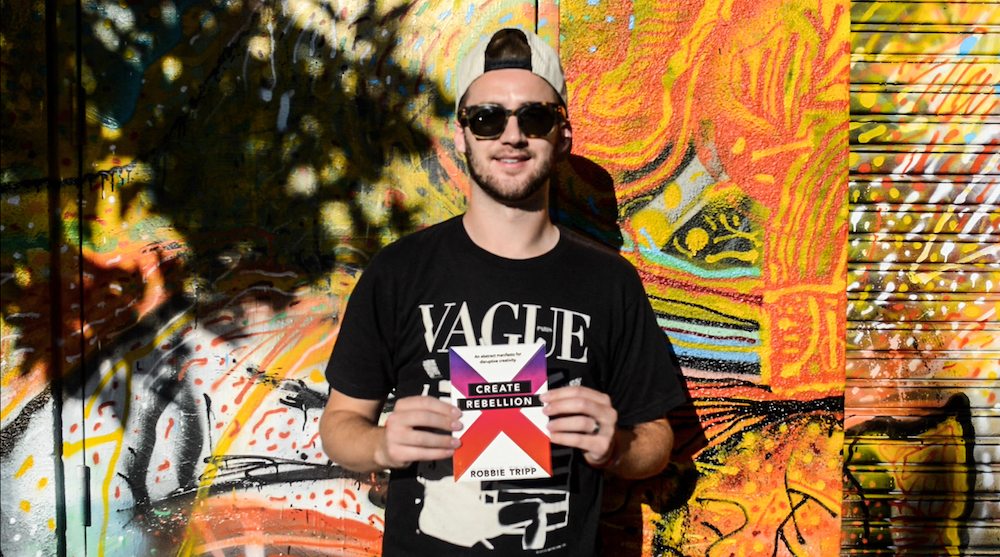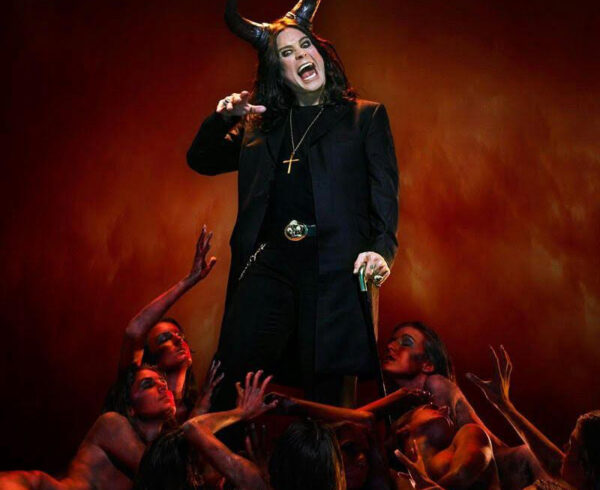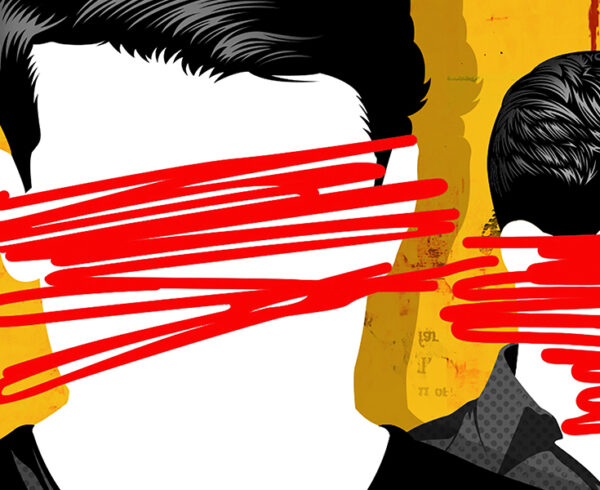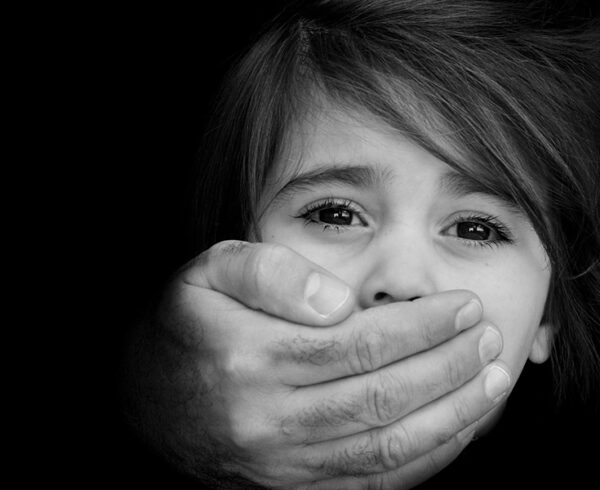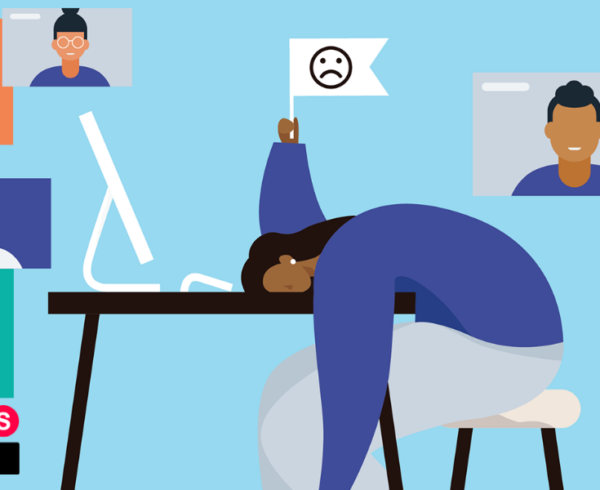Millennials get a bad rap these days. All too often, the words self-involved, entitled and egotistical are synonymous with this generation. None of these can be used when describing author Robbie Tripp, but he’s still quick to say that he is a proud product of his generation. He believes that Millennial creatives are going to change the world.
Few writers sat at their desks as children daydreaming of becoming authors, and Tripp is no exception. Though he was always interested in storytelling growing up, even entering fantasy short stories in his elementary school arts contests, his passion for basketball won out as the focus of his early life. After a successful high school career, he went on to play in junior college, when midway through the season, he was injured. This injury gave Tripp a long enough hiatus from sports to provide him the opportunity to rekindle an old but neglected talent.
“Writing was a passion I’d always had but I’d put on the backburner,” says Tripp. “Taking a step away from my focus on basketball for the first time in my life caused me to get back into writing and realize how much it meant to me. I was also reading The Alchemist at that time and it was like scripture to me. I knew that my personal legend was leading me to start the next chapter of my life.”
His intuition didn’t steer him wrong. Soon after declaring writing to be his main focus, Tripp founded the Salinas Writer’s Circle at the John Steinbeck Public Library. He’s since gone on to become a contributing writer for The Huffington Post, and a soon-to-be contributor to Entrepreneur.com. An expansive range of material in his articles show a versatility few writers have. With ease, Tripp handles hard-hitting topics like the effects of pornography on our culture, human interest write-ups such as a profile on Olympic gold medalist swimmer Nathan Adrian, and a lighthearted look on the wiles of consumerism in regards to Kanye West’s Life of Pablo merchandise.
Why Millennial “Narcissists” Will Change the World is perhaps one of Tripp’s most challenging articles. He presents the reader with the idea that the supposed negative traits Millennials have been assigned are actually positives. It is Tripp’s assertion that these bad attributes are producing good results that are shaping the future of our world. With just the right amount of confidence to pull it off, Tripp proposes that as a generation of social savants, passionate purists, and connected creators, his generation is not the manufacturing line generation, but the maker generation.
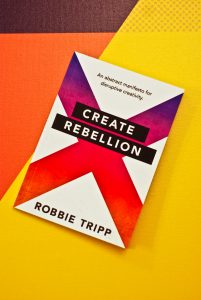 Tripp’s greatest literary feat to date is the publication of his creative manifesto, Create Rebellion. It is a book that at first glance could easily be categorized as creative self-help, yet when talking with Tripp about how he sees his book as being different from others along these lines, such as Elizabeth Gilbert’s Big Magic or Julia Cameron’s The Artist’s Way, he points out distinct differences.
Tripp’s greatest literary feat to date is the publication of his creative manifesto, Create Rebellion. It is a book that at first glance could easily be categorized as creative self-help, yet when talking with Tripp about how he sees his book as being different from others along these lines, such as Elizabeth Gilbert’s Big Magic or Julia Cameron’s The Artist’s Way, he points out distinct differences.
“I’m sure the book has a few similar ideas as other books on the subject of creativity, but it’s the way it’s stated that makes Create Rebellion unique. It is far from a traditional self-help book. It helps people connect with their creativity in the abstract and illustrative way it is written; it’s not a five step, quick tips kind of thing. It is a manifestation of my innermost thoughts that I hope will inspire others. I want to help creative minds remain faithful to their calling to create. It’s intended for people who want to create something, anything. ”
Though Tripp admits the book is primarily for people who are already in a creative flow, he’s had several would-be-creative readers contact him and say the book caused them to be inspired to create.
Several times throughout our interview Tripp used the term creative activist. This was not a term I’d heard used before so I asked him to elaborate.
“I’m such a believer that you don’t have to consume what they make. I’ve never been content to be a passive consumer of what others create, I’ve always believed that I’m capable of making things that others will be interested in and entertained by and inspired by. I’m not satisfied unless I’m working on contributing my own voice. One of my goals is to encourage creatives to think this way,” he clarified.
When I read some of Tripp’s work on his website, I was drawn to a prose piece called The Dreamer and The Wisher. In a beautiful stream of consciousness, he writes about how to hold onto being a dreamer in a world where wishers are consistently pulling and pushing you towards their ways of life. The piece reminded me of one of my favorite authors, David Foster Wallace. As it turns out, Tripp shares my admiration for the iconic author. In fact, he even gives a nod to the recent DFW-centered film The End of the Tour in his book. Near the end of Create Rebellion, Tripp writes: “While the weak-minded drop to the dirt with intellectual exhaustion, you will be whizzing through the landscape until the end of the tour. The uninspired will never know what it is like to lose sleep over incessant thoughts that gallop inside the mind.”
Creative activists, like Tripp, those vying for the inner creative in us all, are few and far between. We can only hope to learn from them and usher in these galloping thoughts and sleepless nights. We can use work like his to see the world as a blank canvas rather than a painting already completed by another artist. This is the greatest thing any creative can hope to impart, a sense that we’re all on the same playing field. We’re all made to be creating.
Check out more of Robbie’s articles on his site. Also check out his wife Sarah’s site.
